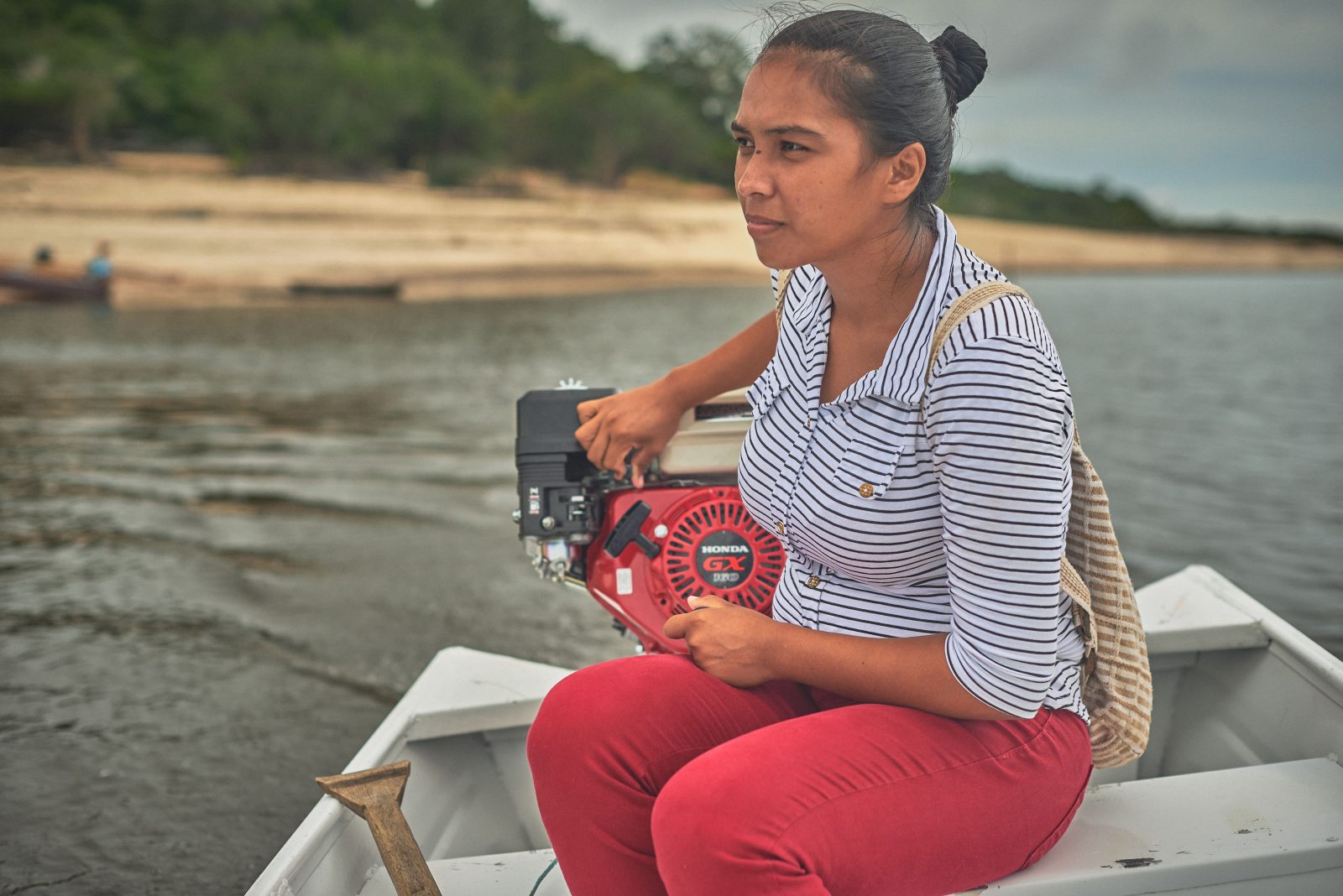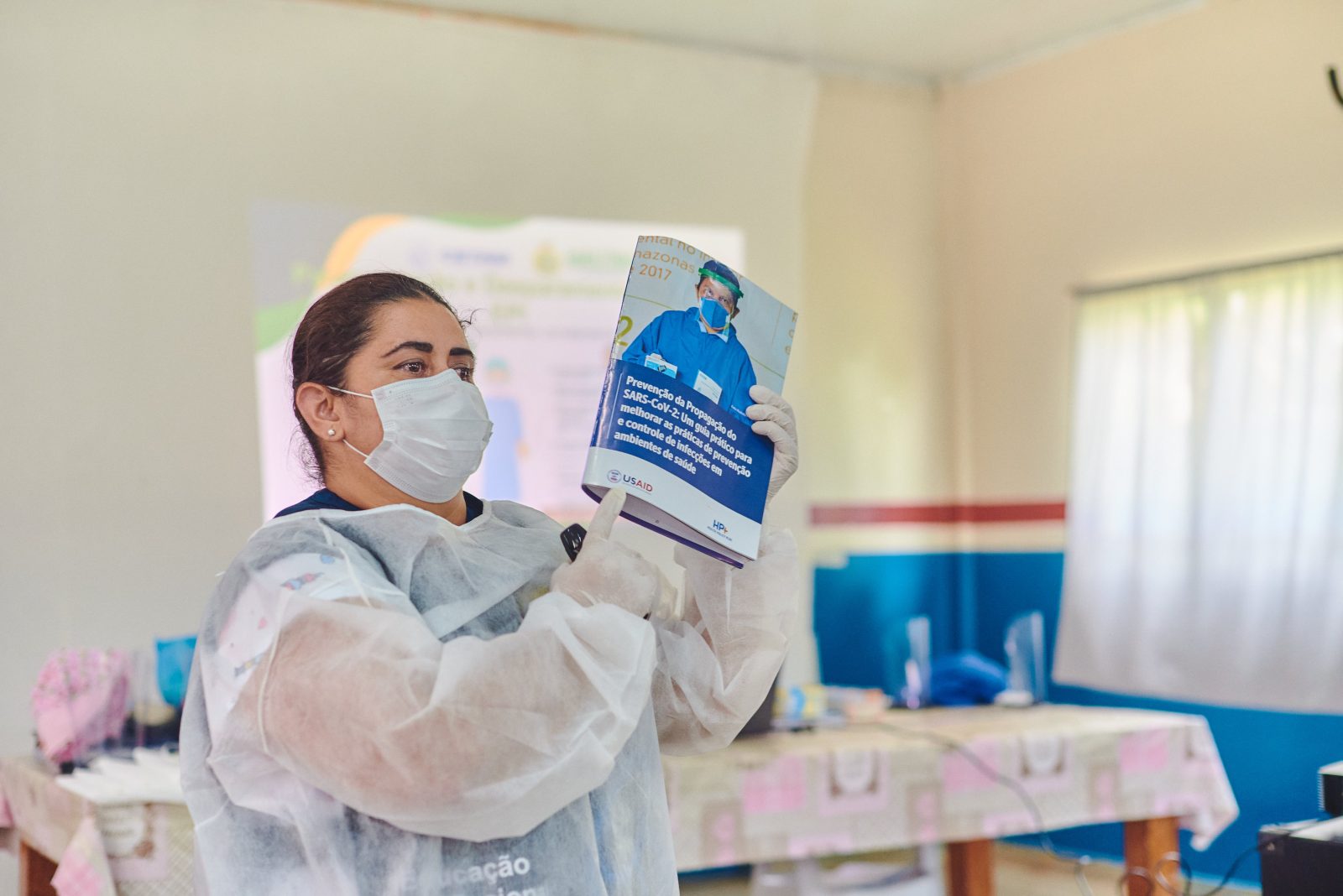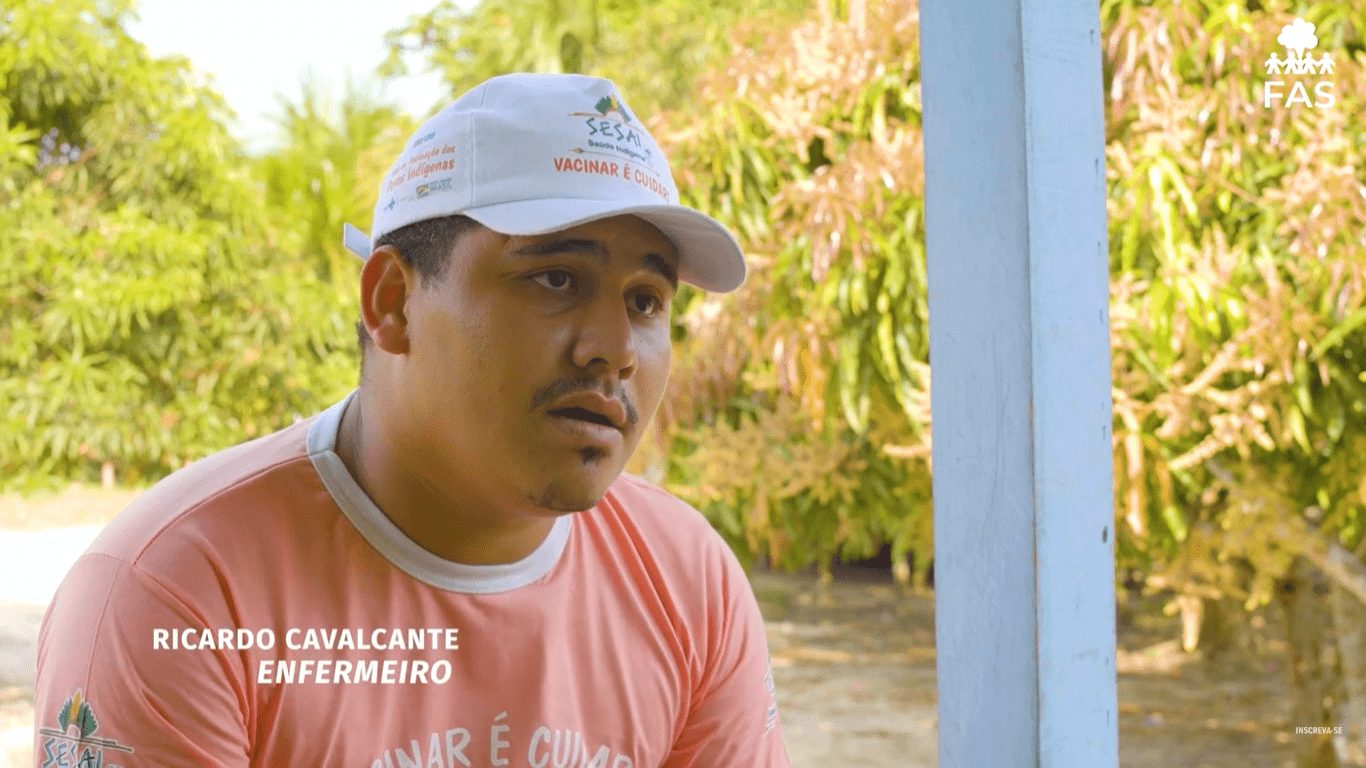FAS installed 66 telehealth poles in 22 municipalities in the Amazon, serving 2,305 people and training 999 health professionals
“It is to go to Manaus and recover there,” says Krisiane Brito do Nascimento. “If you come here and get sick, you run the risk of losing your life, because it is very far away, you know. Even more so in a time of despair, the strong banzeiro*”. The health agent’s speech portrays the difficulties to get access to health care in the Tumbira Community, in Rio Negro, but also represents the reality of many other inland areas in the Amazon.

Long distances to the hospital centers and lack of communication were challenges faced by the community health agent, Krisiane do Nascimento in the Tumbira Community, on the banks of the Negro River (AM).
Photo credit: Rodolfo Pongelupe
Long trips to the nearest health care facility and the shortage of medicines, equipment, and professionals are among the obstacles that place the North region in the last positions in terms of life expectancy in Brazil, according to a survey by the Amazon 2030 project.
Watch the documentary “Entre banzeiros e canoas”:
The vitality of the world’s largest tropical forest and the health of the people who live there are closely linked; there is no chance of environmental sustainability without human presence and care. FAS believes in this connection, and for 15 years has looked after the well-being of the people who are on the front line of the Amazon´s conservation.
The institution proposes solutions to the main health-related needs of Amazonians, with a focus on primary care in riverside and indigenous communities. We invest in the continuing education of community health agents, in subjects such as vaccination, physiology, and children’s health. In all, 999 professionals from the region have already been trained in FAS’ workshops and trainings.

In support of local governments, FAS and partners promote training courses for health agents in the Amazon interiors. Photo credit: Rodolfo Pongelupe
Health does not wait. In the treatment of diseases and in the technical and qualified response in the exact time, technology is an ally to bridge distances and bring care closer to those in need. That is why 66 telehealth points have already been installed in 22 municipalities, 22 Conservation Units (UCs) and 16 Indigenous Lands (TIs) in the Amazon.
The connectivity points are equipped with a service structure and internet access for online consultations, and have available the specialties of medicine, nursing, and psychology. Since the beginning of the initiative, more than 2,300 people have been attended to through the telehealth system.
FAS also works on the implementation of clean and renewable energy systems, such as those of solar origin, which guarantee the operation of service units in riverside and rural areas of the region.
“The lack of energy is a very big problem for us as professionals. When we have a child, for example, with pneumonia, it is a disease that we can treat right here in the center, but due to the lack of energy, we have no way of nebulizing it, so we have to take the child to the nearest municipality”, explains Claudia Mariscal, a nurse from the Base Center of the Special Indigenous Health District (DSEI) of the Middle Solimões River and its tributaries (MRSA). In 2020, solar panels were installed in the pole, which serves around 105 families of the Madija Kulina people.

“Many times the district radio didn’t even listen to us, communication was scarce. I think that the project will help us a lot. If there are any health problems in the village, we can contact our technical team directly“.
Ricardo Cavalcante, indigenous health agent in the Massapê Village, in Vale Javari (AM), where FAS installed a telehealth point
Learn more about the projects and programs in health promoted by FAS:

